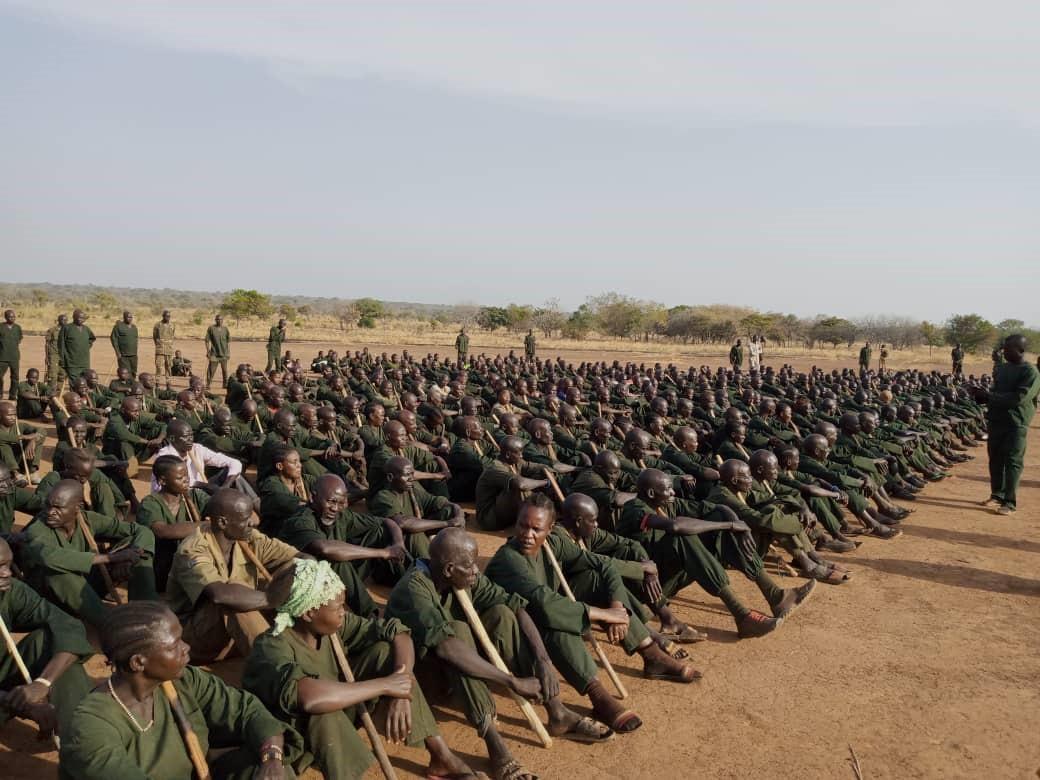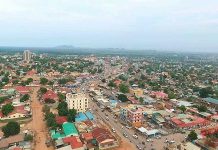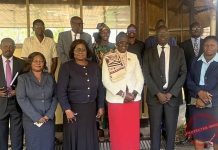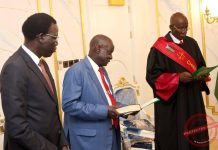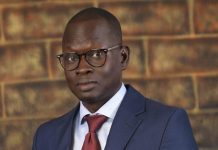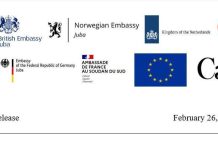Sheila Ponnie
Africa-Press – South-Sudan. Nine years ago, South Sudan plunged into the dark hole of violence when spontaneous clashes erupted in the country, throwing the entire region— if not the continent—into panic as countries tried to evacuate their citizens amidst a hail of bullets that saturated the air.
The situation was tense. Innocent people died—hundreds were displaced as men and women, armed or otherwise, went for each other’s souls. Humanity was stretched to its maximum limits.
Two years later, the solution was found. But even that never lasted.
A 2015 peace agreement for a unity government fell apart in 2016, escalating conflict in some parts of the country. A UN report says the situation was escalated by the high number of guns in civilian hands.
Luckily, normalcy returned following the signing of a revitalised agreement in 2018.
To steer Africa’s youngest nation down the narrow path of stability, the UN Security Council in May 2021 slapped South Sudan with an arms embargo. The decision was renewed last year and will run until May 31, 2023. During that time, Juba is barred from procuring any military equipment, including guns, bullets, or military vehicles.
Resolution 2633 also renewed a targeted sanction of a travel ban and asset freeze against some top government officials and entities; and extended the mandate of the Panel of Experts, which assists the work of the South Sudan Sanctions Committee, till July 1, 2023.
But in between these biting sanctions, the government finds itself in a tricky situation of implementing the peace agreement that it committed itself to. Security is one of the chapters that must be implemented before the country goes to the polls in December 2024, the set deadline for the transitional government.
The agreement compels all the parties to unify all their forces under the command of the president.
A lot has been done. Thus far, just one state – Unity, is yet to graduate its forces.
Interestingly though, while the government continues to show commitment to dispensing with this critical chapter, one question that most observers ask themselves is the quality of the officers being churned out of the many containment sites ready to be deployed to improve the wanting security situation in the country.
Most, if not all of these newly graduated soldiers lack the much-needed weapon-handling techniques, at least going by the position taken by the government.
Because of the biting effects of an arms embargo, the government claims that they don’t have enough guns to graduate the officer. This poses the question of whether these newly graduated officers have the basic requirements of a police officer – like gun psychology.
“The graduation is supposed to take place with new weapons and [real] bullets,” one of the newly graduated officers, whom we’ll refer to as ‘Muri’, told The City Review.
The officer who spoke to The City Review at the last graduation held in Malakal, Upper Nile State, in late November painfully narrated how his dream of protecting the territorial integrity of South Sudan could go down the drain due to gun restrictions on South Sudan.
Muri said he has been in the training centre for nearly three years now and that they have been training with sticks and were promised new guns.
“While I am happy that I graduated, I honestly don’t feel like a complete soldier. “Which soldier graduates without holding a gun,” he wondered.
“Since we graduated, we do not feel that we are now really involved in the army, because until now we are staying in the training centre, despite the lack of food here in the centre.” We still feel like we’re still in the training centre and haven’t graduated yet.
“Graduating with a stick is not what I had anticipated. I thought we were meant to have new guns during the graduation, unfortunately, this was not the case on our side,”
According to Muri, this is the first time in his life to see and be part of military forces to be graduated with sticks.
“There are no soldiers who graduate with wooden weapons,” he wondered. “How will the soldiers perform their mission without weapons? If you are a police soldier, for example, how will you fight crime without weapons?”
“How will we protect the property of the citizens? That’s all we learned at the training centre, but how are we going to implement it without a weapon?
“Will you arrest criminals with a stick? He posed sarcastically.
Michael Makuei, the government spokesperson renewed a call to the international community to lift the embargo in order to allow full implementation of the 2018 peace accord.
He explained that one of the major hitches that are actually facing the security arrangements is the lack of enough weapons.
“You have seen we graduated them with sticks? The international community is telling us to deploy them. Should we deploy them with sticks?” he asked.
He further pleaded: “My request to the UN Security Council is to lift the arms embargo.”
Muri says, the three years spent in the training centre did not live up to his expectations.
“There are many who joined the training centre and they do not have the slightest knowledge of the military, so they had to learn but the problem now is that this person does not know how to use a gun because we have been trained with sticks. This is something that I will never forget in my life he said sadly with his face facing down,”
But while Muri awaits deployment, just like hundreds of his colleagues who trained with sticks in place of guns, he can only hope that they now will find a working formula to procure enough weapons for every officer.
“We came to the training camp with the intention of defending peace, so that members of our society who sought refuge in neighboring countries because of the war would return, protect their property and promote peace in our country. I am tired of this stick thing!”
According to the 2018 peace deal, South Sudan was supposed to register, screen, train, and graduate as well as redeploy 83, 000 unified forces within eight months of the signing of the agreement.
The soldiers were to be drawn from various armed parties to take charge of security during the transitional period.
Utilities
“Graduating with a stick is not what I had anticipated. I thought we were meant to have new guns during the graduation, unfortunately, this was not the case on our side.
For More News And Analysis About South-Sudan Follow Africa-Press

